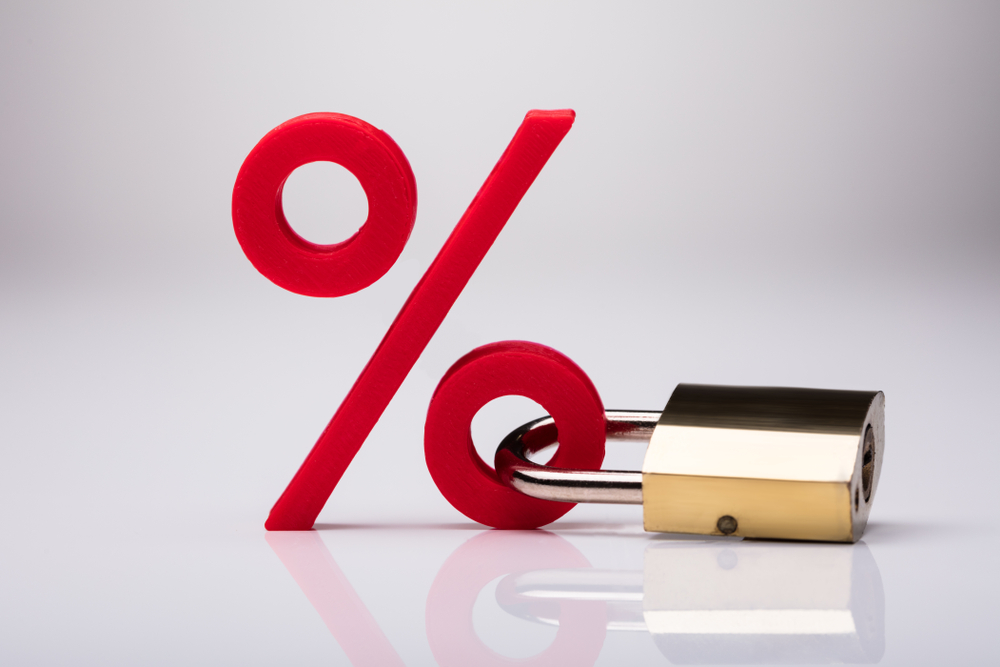In a normal universe, people who lock in a floating-rate mortgage lock into a fixed rate. And that fixed rate is almost always higher than their current variable rate.
But this is not a normal universe.
In the world we now live in, variable borrowers are actually locking into five-year fixed rates that are lower than their current rate. For as long as we’ve been keeping detailed rate records (since 2009), we’ve never seen this happen before.
One couple we spoke with this week has a prime – 0.55% (3.40%) variable from a major bank. That bank is offering them 2.92% for a new fixed rate today. That’s a 48-basis-point rate drop or almost $4,200 savings on their nearly $400,000 mortgage. And all they have to do is e-sign to get it. No effort, no penalties, no fees.
Such rate-locks may not be a large-scale trend but they are happening virtually every day, especially with 2016 vintage variables. If more people thought the Bank of Canada’s next rate change would be a hike, the number of variable-to-fixed conversions would be proportionally much higher.
Locking in Isn’t for Losers
History shows variables outperform fixed rates. And recent yield curve inversion implies decent odds of recession (eventually). So why would you lock in your floater?
Well, fixed rates still win at least 20-30% of the time, depending on what research you cite. Moreover, recent readings of core inflation, employment and GDP have been eye-openingly robust. Add some big trade deal announcements (U.S./China and NAFTA 2.0) and/or surging oil prices, and suddenly the BoC is back on the hiking train. (Not a prediction, just a possibility.)
On top of all this, fixed rates are now meaningfully cheaper than variables up front. So it’s hard to criticize rate-lockers.
Rate Conversion Tips
As mentioned Monday, there’s something to be said about refinancing a cruddy variable rate into a shiny new prime – 1.xx% variable rate. But that assumes a variable still suits you.
Folks who need more tranquility in their lives may instead find fixed rates more palatable. If that’s the case, here’s what you’ll want to keep in mind before converting (locking in your variable).
1. Negotiate
When you ask to lock in your floating-rate mortgage, your lender usually has you over a barrel. It knows you can’t leave without paying a penalty, so you likely won’t get the best rate it’s offering brand new customers.
Worst case, you should at least get the going rate advertised on that lender’s website. If the lender won’t offer that to you, it obviously doesn’t respect your business and that should be the last time you ever deal with that company.
Whatever the lender quotes, negotiating is mandatory—assuming the potential savings is worth your time and you don’t want to switch lenders.
Some tactics:
- Ask if they have a “client loyalty rate” or better “discretionary rates“
- Print off the best mortgage rates you find online that apply to you (take a screenshot of applicable rates on RateSpy and send it to them, for example), and
- Threaten to break the mortgage (if necessary).
2. Mind the Term Restrictions
Most lenders make people who convert their variable take a fixed term that’s equal to or longer than their remaining term.
Many lenders also impose a 3-year or 5-year minimum on the new fixed term.
This is something to keep in mind as it limits your options if the lender in question doesn’t post competitive longer-term fixed rates. (This is yet another reason to avoid lenders that don’t post competitive rates publicly.)
3. Watch Those Penalties
Fixed-rate mortgage penalties can be heinous in comparison to variable penalties. They’re often 2-5 times more painful depending on the lender, mortgage type and rates at the time.
Keep that in mind if you’re considering locking in but might have to:
- move (i.e., port and increase or relocate outside the lender’s lending area for work)
- sell outright, or
- refinance before the new fixed term matures (e.g., borrow more money, remove someone from title, extend the amortization, etc.).

 log in
log in
 In a normal universe, people who lock in a floating-rate mortgage lock into a fixed rate. And that fixed rate is almost always higher than their current variable rate.
In a normal universe, people who lock in a floating-rate mortgage lock into a fixed rate. And that fixed rate is almost always higher than their current variable rate. Rate Conversion Tips
Rate Conversion Tips 3. Watch Those Penalties
3. Watch Those Penalties
15 Comments
I renewed a mortgage last week with TD Bank for a house in the Fraser Valley (British Columbia), and was able to get a 4 year fixed term at 2.79%.
Solid!
With the 5yr Canada bond yield over 1.5%, it could be a good time to lock in a 4 or 5-year fixed.
I like the chances for fixed rates here. If Poloz is right and the slowdown was temporary, fixed rates could be 1% higher in 12 months. If he’s wrong I don’t think the next recession will be deep or protracted.
I heard less than 1 in 10 deals now are variable. You’d have to be a brave mortgage specialist or broker to stick your neck out and recommend a variable rate. Prime rate has to drop or your client loses.
We were offered 2.85 % 4yr fixed early renewal ( holding only till end of this month)…..should we hold out for possible falling rates ? Mortgage renewal Dec/2019
S. Gates,
I’d suggest telling your bank to match Scotia’s eHome 4yr fixed rate of 2.74%. If they say no, and bond yields drop back below 1.4% before the end of July, then wait it out. Otherwise lock it in.
love reading some of these comments, my mortgage comes due May 2020, when can I start to negotiate?, I am with CIBC and am fixed at 2.64%. I have no problem in negotiating or moving to another mortgage company, any help, suggestions are much appreciated.
Hi Glenn,
Here are three things one can do in this situation:
1) Contact their lender and ask for the best rate on an early renewal (then compare that rate to one’s existing rate and other options)
2) Find the best competing rate online (https://www.ratespy.com/) and compare its borrowing costs (after switch costs/penalties) to one’s options at the current lender
3) Wait until roughly 120 days before renewal when one can lock in a rate with a new lender
In many cases this job is made easier with a spreadsheet: https://www.ratespy.com/amortization-schedule
Hope this helps…
much appreciated and will maybe end of summer start doing my homework as to rates and contacting my REP at CIBC and will continue to check ‘ratespy’, I also started to follow you on Twitter so will continue to gain hopefully mortgage knowledge etc. I have a huge mortgage $550G but it is part of a tri-plex where I live in one of the units so any bank usually loves me as they are making a ton of interest off of me but also but hoping for the lowest rate of course, thank you in advance, any hints my ears are open
Our pleasure Glenn. The only thing I’d add at this point is that some lenders do not offer their lowest rates for properties with more than two units. In this case, it’s probably one of the first things you should confirm when speaking to a lender or broker. Cheers…
What if the bank is saying no to lock in your Rate due
To bad credit
Your not asking for any more $$
Your asking to be locked in so you can save $$$ to pay
Your mortgage on time
To help out with financial distress
How do you proceed?
What do you further say to the bank??
Anne
Lenders don’t re-qualify you when you convert from a variable to fixed rate. If I were you, I’d just tell them you want to convert and see what they say.
Hi,
Im at 2.74% five years fixed and 4 more years left. My mortgage is 500k+ with HSBC and thier rate is crazy low now. Wondering if I can switch to 7 years fixed or 10 years fixed when the rate os goes below 2.5%. Will there be any penalty to change from 5 years fixed to longer term fixed?
Thank you
@Citizen Earth
Like most lenders, HSBC doesn’t allow borrowers to completely exit one closed rate for another with no penalty. Although, you might be able to change to a longer term and *blend* the rate without penalty. The best resource for details on that would be the bank.
Note that 7yr and 10yr terms have never outperformed in history, as far as our records go. I’d be cautious about locking in that long. God forbid you have to break the mortgage early as the penalty could potentially be enormous.